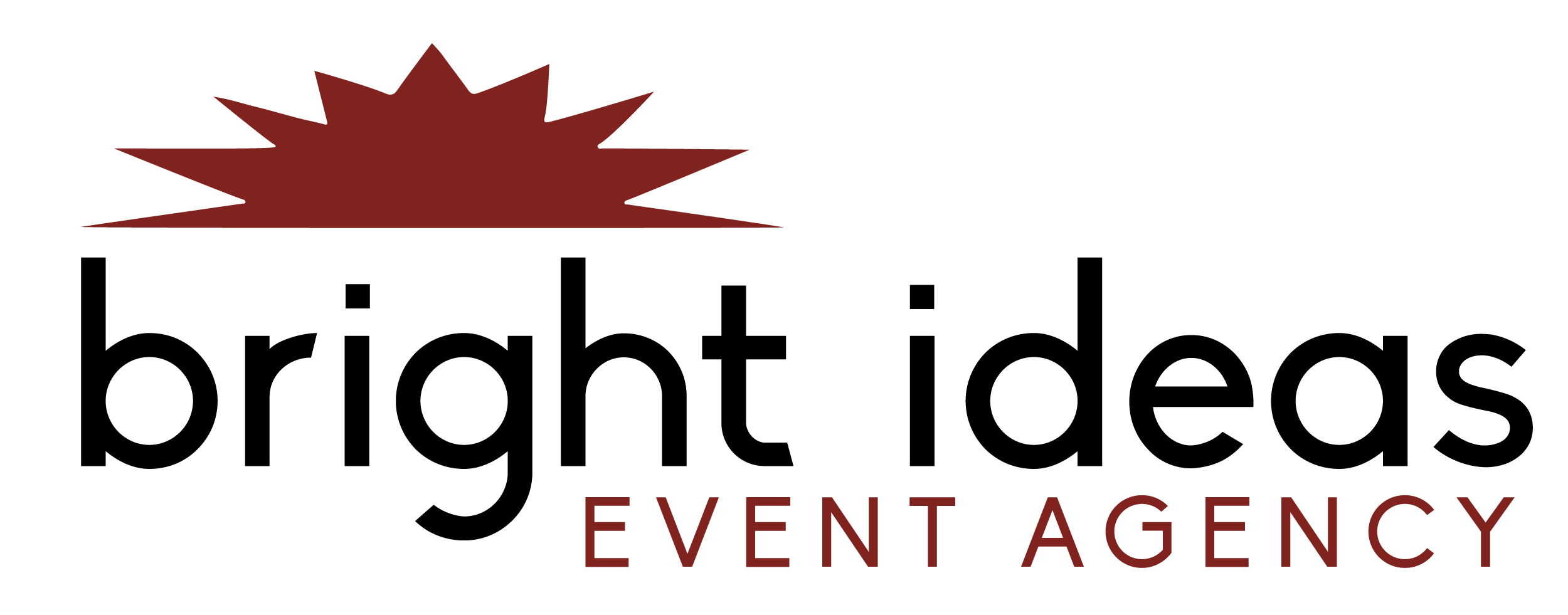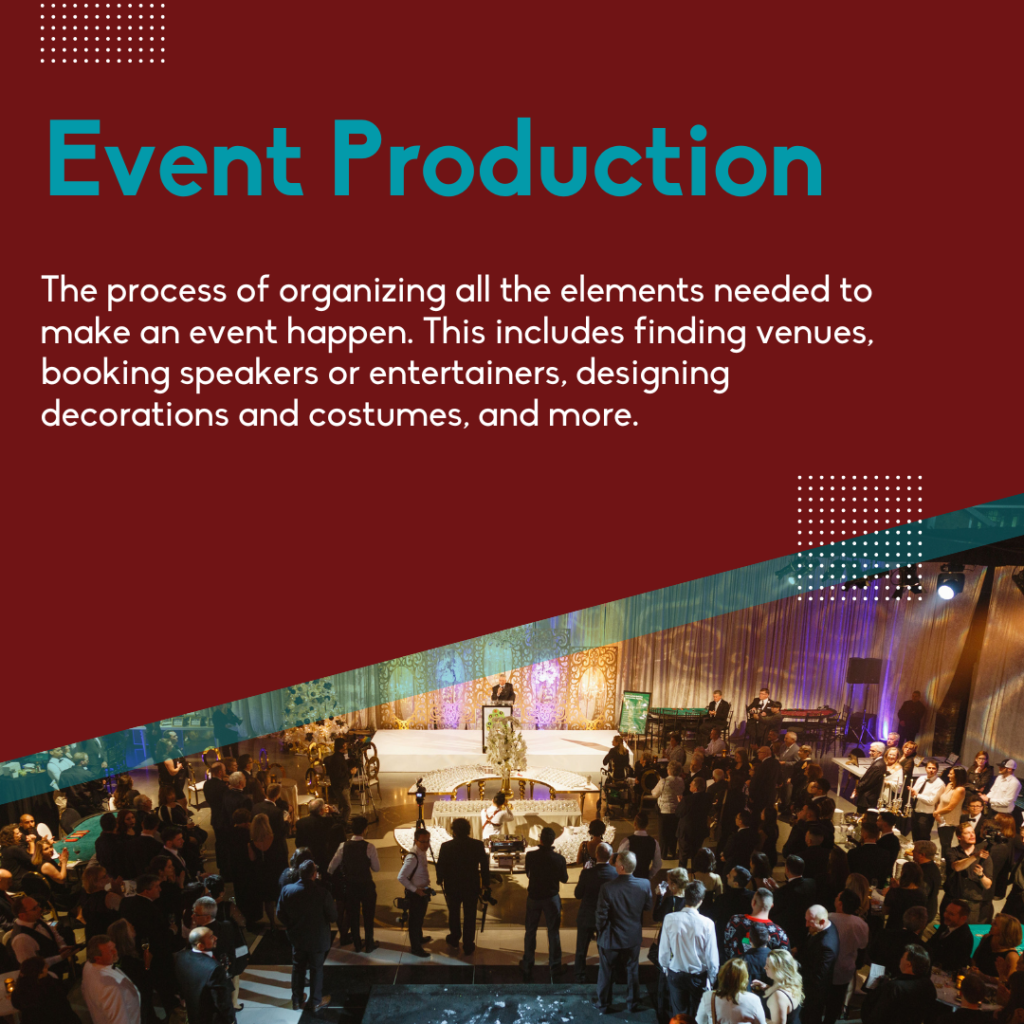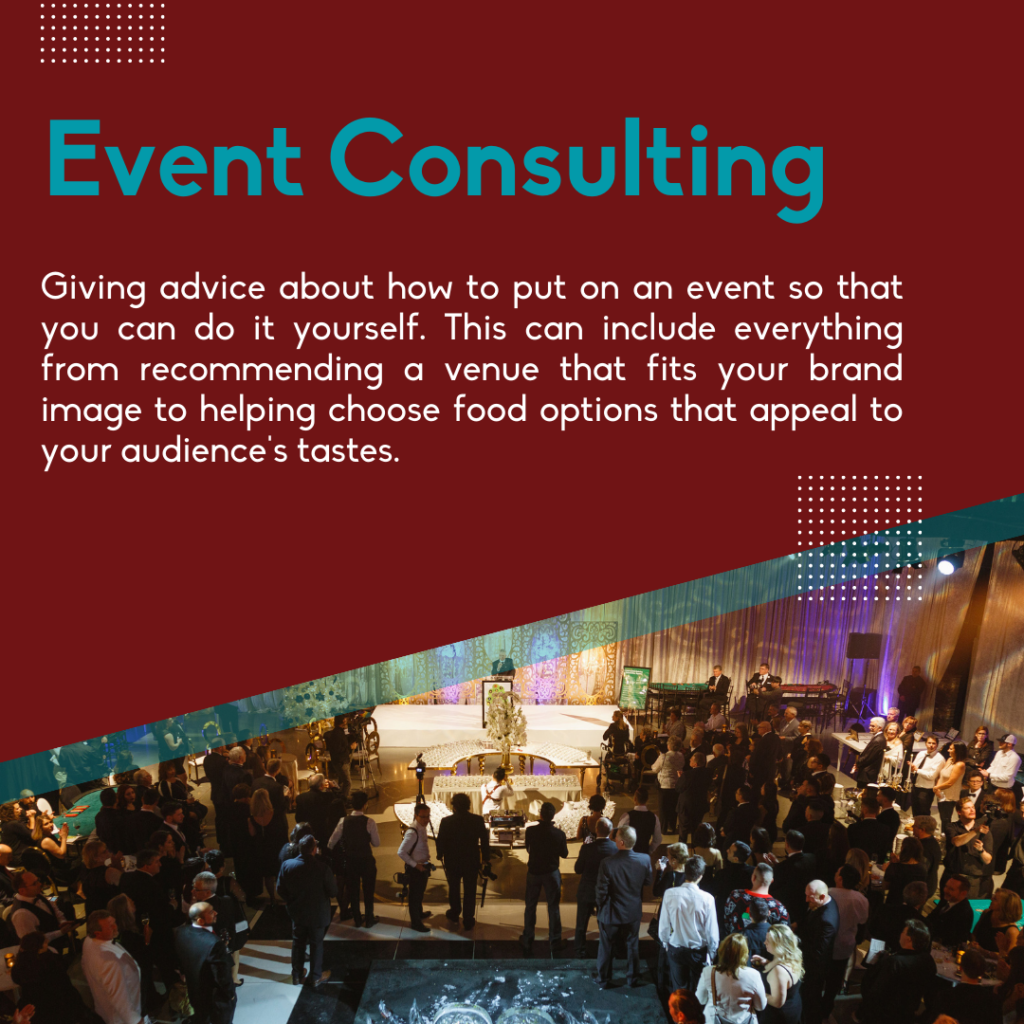Imagine this. You and your team sit down to plan your first big corporate event. During the meeting, we realize there is a lot to do and so you need an event service. Between deciding on a budget, finding the perfect venue, booking caterers, picking an appropriate theme and decor, and a million other things, you start to get really overwhelmed by the magnitude of tasks that need to be executed to move forward with your event. As a result, your team decides to reach out to a professional who could help out with the planning process for the event (an extremely smart move on your part!).
A simple Google search brings up a giant list of event companies that you could work with, where you see a number of titles like, but not limited to, ‘event production agency’, ‘event consultant’, ‘event management company’ and ‘event planning’. All the terms seem quite similar at first glance, but in reality, they are very different service providers. How do you know what is the best fit for you and your needs?
The first thing you need to do is to decide how involved you and your team want to be. Be honest with yourself. If you have lots of time to dedicate to event planning, then you might just need a bit of help here and there. If you want a totally ‘hands-off’ approach, you will need full-service event production.
Event Production as an Event Service
Event production, theoretically, is the strategic planning, coordination and implementation of all elements of an event from start to finish. Sounds pretty official, doesn’t it? In practice, it usually involves planning everything from A-Z, including day-of-event support and post-event debriefing synopsis.
Here is a partial list of our full event production services:
- Venue research, selection and contract negotiation
- Creating a working event budget
- Booking event vendors, managing their contracts, permits, insurance, etc.
- Theme development & design strategy
- Event documentation such as scaled floor plans, show flows, production schedules
- Hiring of event personnel
- Onsite event management.
- Data analytics management
- Measurement of the return on investment (ROI) on the event.
The Event Production Cycle
The Event Production Cycle is a series of steps that outlines the responsibilities an Event Producer takes on during each phase of the event; pre-event, during the event, and post-event. Although all phases bear equal importance, attention needs to be distributed according to priority to ensure the event is a resounding success. This gives you an idea of what full-service Event Production looks like.
Planning Stage
We start with the Planning Stage, which usually begins a few months or even years before D-Day, depending on the scale of the event and the level of preparation required. The Event Producer has a meeting with the client to discuss any outstanding goals or expectations that the client has and asks the client to share their event vision. This is key! Knowing what your client imagines the event will look like allows you to design your event strategy accordingly. This stage also includes working with the client to come up with a realistic budget according to the scale of the event, brainstorming event themes and an agenda that matches the client’s goals, and setting up a timeline for all the important dates and deadlines pertaining to the event. Whew! Sounds like a lot, doesn’t it? Well, it is!
Pre-Production Stage
Once we finalize plans, it is time to put them into action. The Event Producer spends a large part of the Pre-Production Stage finalizing and negotiating service contracts with the event vendors taking the venue, theme, guest accommodations and budget into consideration. This includes working with the client to finalize the perfect venue and menu options. After the vendors have been confirmed, the Event Producer and their team work on creating promotional materials (if necessary) to market the event to the client’s target audiences.
Production Stage
Once the Pre-Production Stage is over, we move onto the Production Stage, which usually starts a few days before the actual event day. The Event Producer checks in with all the vendors to make sure everything is still on track for the event. If there is a dress rehearsal or dry run, it is important for all parties to treat it like the main event, so that any problems that might arise can be dealt with beforehand.
On the days leading up to the event, the Event Producer and team arrive early and make sure everything is being loaded in according to the agreed-upon load-in schedule. They are a point of contact for both the vendors and the clients in need of any assistance. In case something goes wrong, the Event Producer is in charge of troubleshooting and communicating with all the vendors to adjust to the new plan.
Post Event Stage
Once the event has concluded successfully, we enter the last stage or the Post Event Stage of the production process. The Event Producer oversees the loading-out of the event vendors and the tear-down of all event items. All outstanding payments are made and the vendors and event staff are thanked for their contribution to the event. Lastly, the Event Producer prepares a document for the client to reach out to guests for feedback on the event in an online survey. This is a very important aspect because it allows room for improvement and elevates the level of future events hosted by the Event Producer or the client.
Thus, you can think of an Event Producer to be your go-to for all things events. We all wear many hats! Event Producers are the perfect option for you if you want to take a hands-off approach on the event organization front. We will plan and organize logistics down to the last minute detail, making sure everything runs smoothly while also considerably lessening your workload.
Why Hire Them?
Event Producers are especially useful in case something goes wrong during the event rehearsal or on the main day. An experienced producer would more likely than not have come across an adverse situation previously and would have the quick thinking and experience required to deal with the situation quickly and effectively.
One significant reason to hire an Event Producer is to gain access to their broad network of event providers. Producers with many years under their belts usually have a vast network of event professionals and vendors. As producers are usually the ones who are in charge of booking the venue and other vendors, they will make sure to pick the top vendors for each specific event component in your event plan. A vast network also means a broad range of options. In case a vendor backs out or the venue becomes unavailable at the last minute, producers can reach out to other vendors they know to make sure the show goes on.
As Event Production does involve management of all aspects of the event, it also means that your Event Producer will most likely be clocking in hundreds of hours per event. This can be a hefty investment, but totally worth it if you have the budget. If you are functioning on a tight budget, however, you could look for other avenues, like Event Consulting, that might fit your needs better. Have a look at some of our full production service award-winning events!












